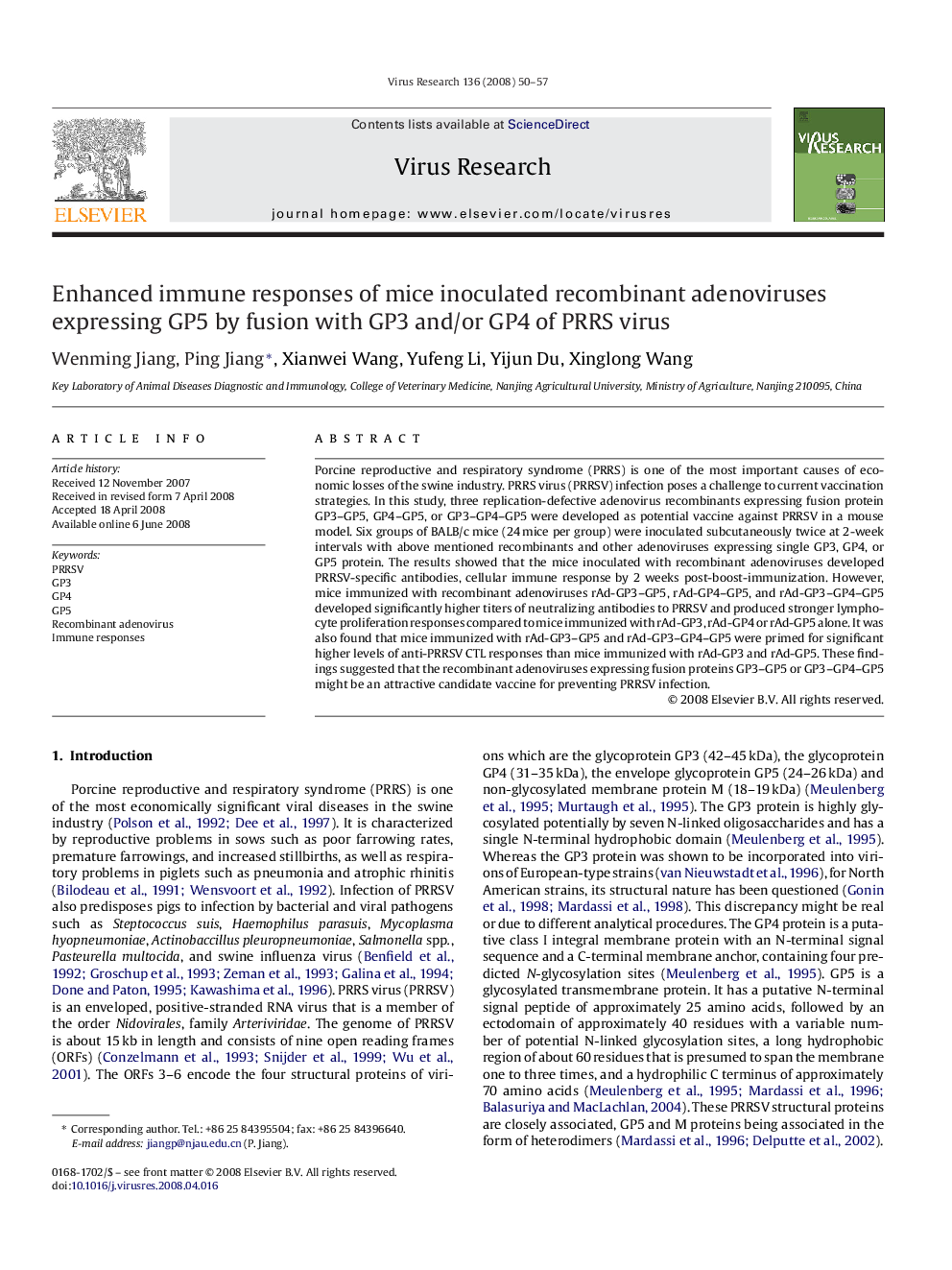| Article ID | Journal | Published Year | Pages | File Type |
|---|---|---|---|---|
| 3430462 | Virus Research | 2008 | 8 Pages |
Porcine reproductive and respiratory syndrome (PRRS) is one of the most important causes of economic losses of the swine industry. PRRS virus (PRRSV) infection poses a challenge to current vaccination strategies. In this study, three replication-defective adenovirus recombinants expressing fusion protein GP3–GP5, GP4–GP5, or GP3–GP4–GP5 were developed as potential vaccine against PRRSV in a mouse model. Six groups of BALB/c mice (24 mice per group) were inoculated subcutaneously twice at 2-week intervals with above mentioned recombinants and other adenoviruses expressing single GP3, GP4, or GP5 protein. The results showed that the mice inoculated with recombinant adenoviruses developed PRRSV-specific antibodies, cellular immune response by 2 weeks post-boost-immunization. However, mice immunized with recombinant adenoviruses rAd-GP3–GP5, rAd-GP4–GP5, and rAd-GP3–GP4–GP5 developed significantly higher titers of neutralizing antibodies to PRRSV and produced stronger lymphocyte proliferation responses compared to mice immunized with rAd-GP3, rAd-GP4 or rAd-GP5 alone. It was also found that mice immunized with rAd-GP3–GP5 and rAd-GP3–GP4–GP5 were primed for significant higher levels of anti-PRRSV CTL responses than mice immunized with rAd-GP3 and rAd-GP5. These findings suggested that the recombinant adenoviruses expressing fusion proteins GP3–GP5 or GP3–GP4–GP5 might be an attractive candidate vaccine for preventing PRRSV infection.
